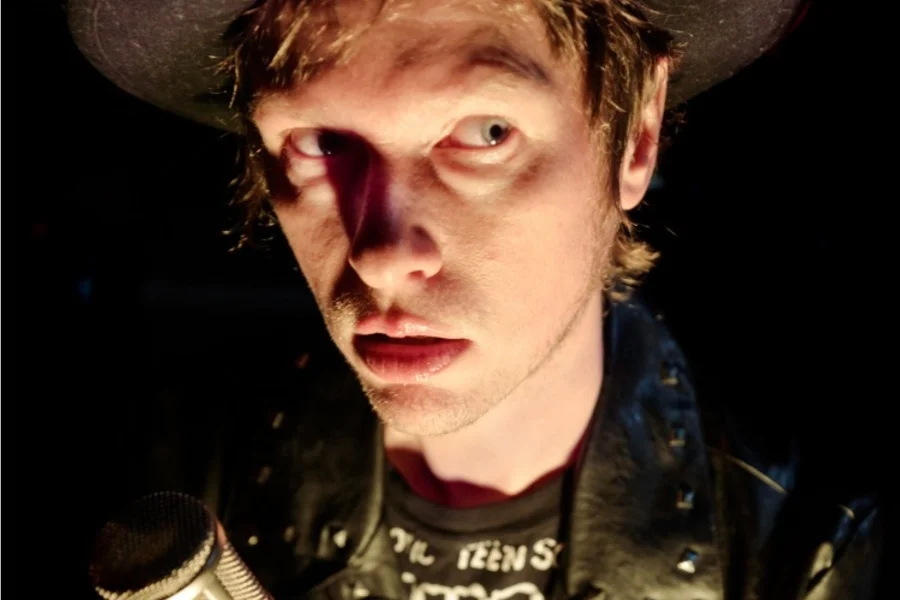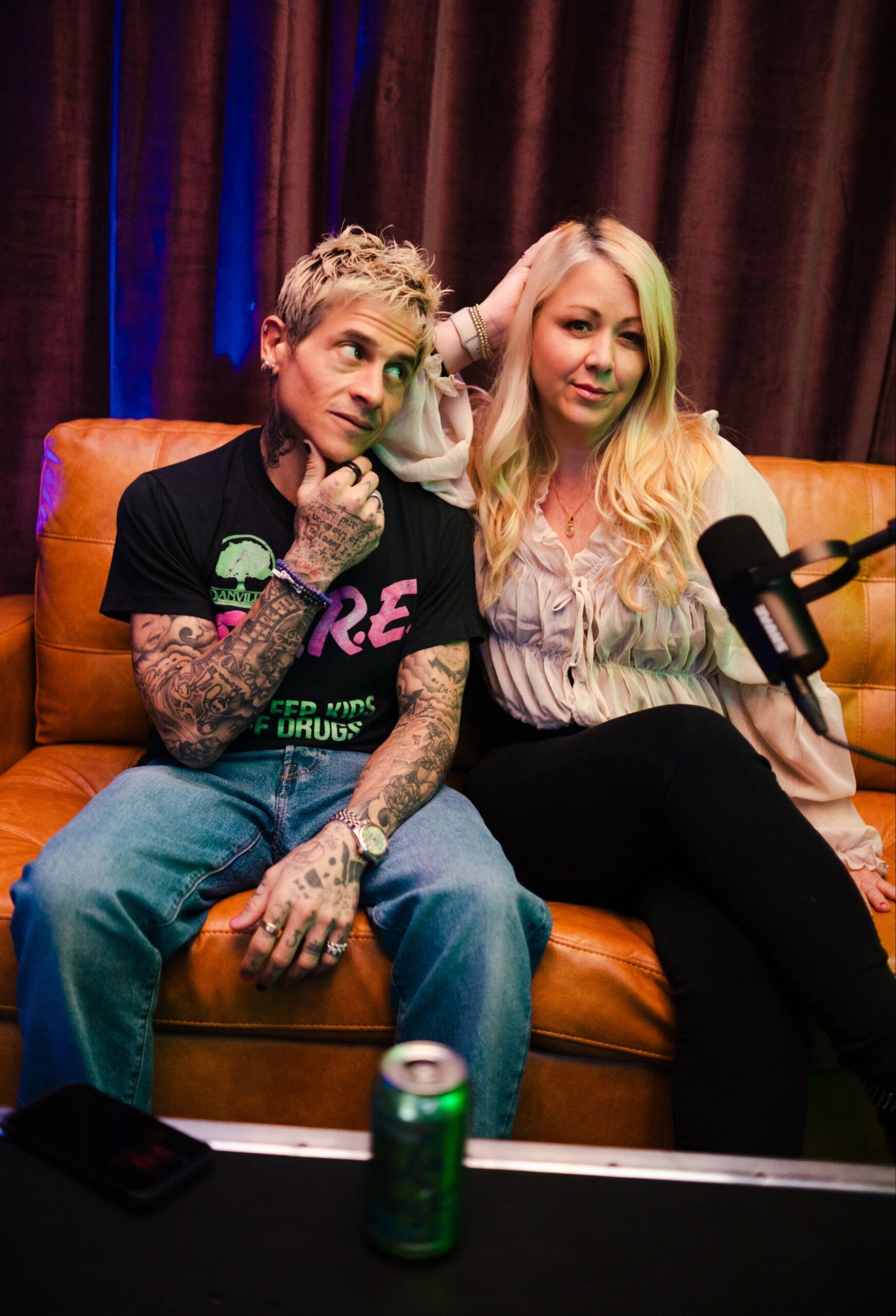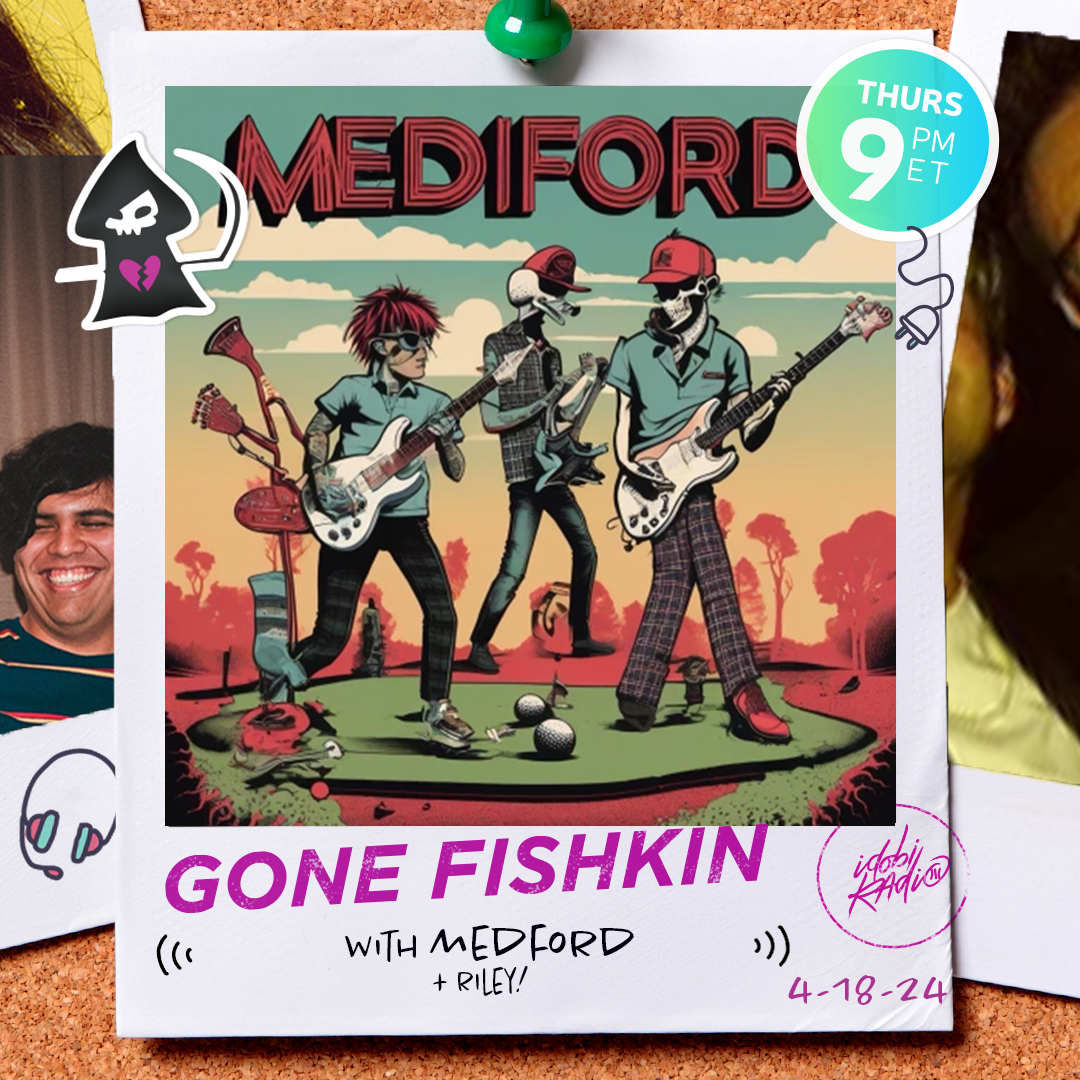You can’t get the question right. You’re fumbling for the right words but all you can hear are the lyrics to “Age of Consent” over and over and over again in your brain…
It’s almost too easy to toss the word “influential” in front of a band to hype up its place in the pop-music pantheon. Few acts deserve it, and the word is so damn relative. But the culture mill spits out thousands of new bands each year and inevitably even the most wanly creative gets the “influential” stamp if it can hang in there long enough.
So, then – what to call a band at the forefront of almost two and a half decades of pop, rock, punk and electronic music? All of your favorite records of the past decade owe patronage to this band in some way. What’s the right word? Pick an adjective that’s neither insulting (don’t want them to feel like dinosaurs) nor sycophantic (the NME chose “godlike geniuses”). You want them to get it that you get it. You want them to take your questions seriously. You don’t want to blow smoke in their collective asses. And, you’ve only got 20 minutes of their time.
Bernard Sumner, Peter Hook, Stephen Morris and Phil Cunningham of New Order walk into the Tribeca diner you’ve been waiting in this cold February afternoon. They are in good spirits, faintly jet lagged and very funny, here to talk about their new album, their eighth studio record, Waiting for the Sirens’ Call.
They look well for men who have spent the better part of three decades touring and recording, still DJing, still partying. Hook has a black eye. They crack jokes. They order drinks and fries. You quickly bury the “influential” question and the interview begins.
“What’s with all the computers?” you want to know.
“On our last album, Get Ready, there wasn’t much programmed stuff on it. But there was a reason for that,” says Sumner, elaborating on the loopy, glitchy, computerized feel of Call.
“Most of us hadn’t worked with each other in five years and we didn’t want a situation where one person sat at a computer and the rest sat there scratching their heads, bored, waiting to get finished. On this album, we decided to turn the computer on and started doing some tracks that are programmed. That’s part of New Order’s sound that we discovered from playing live again and didn’t want to forget.”
Some of the album’s beats came from neither computer nor jam session. Sumner stole the dub drum line for the song “I Told You So” from a pirate radio station while on vacation in the Caribbean.
“Every year I go on holiday on a boat because I like boats,” he explains. “I took a shortwave radio with me and could tune in to the different islands, picking up different styles of music from each island. I recorded it onto a MiniDisc and took it back and laid it all out on the computer and chopped it together. I like some of the beats that were over there because you hear all these taxis going around with these dancehall beats blaring out. I think they’re really interesting but hard, tough rhythms. It was just an attempt to write in a different way and, obviously, once you’ve done it once you can’t do it again.”
“You’ll have to go somewhere else on your holidays,” Morris quips. “Where will you sail to next?” The band laughs. You laugh. They spend the interview nailing each others jokes.
Sirens’ Call has 11 tracks. It includes nods to Kraftwerk on the first single, “Krafty” (“We always have a song that sounds like Kraftwerk, and usually when it’s released to the public we have managed to come up with a better title,” jokes Morris), and a duet with the Scissor Sisters’ Ana Matronic called “Jetstream.” But you’ve heard there is another album, a second New Order disc recorded and mixed, supposed to come out a year and half from now. For a band that often takes years in between records, could it be true?
“We need another two songs, then we finish it,” explains Sumner.
“All the New Order fans complain so much we thought we would put two together,” Hook says with a smile.
One New Order track that will probably never see the light of day is their collaboration with Gwen Stefani on her song “The Real Thing.” Initially, Stefani had petitioned the band hard. She was doing a solo album. She wanted them to co-write a song with her. They agreed, returning to the studio multiple times to lay down tracks for her producers. And then, unceremoniously, all their work got dumped from the final version of the track. At first, the band felt slighted.
“I did a lot of work on it. I was told by the producers that it was great and fine,” says Morris. “I thought 28 years as a musician should count for something, but obviously it didn’t. I was annoyed.”
“So I did a couple of interviews spouting off,” adds Hook. “Then Gwen phoned me…. It was fine, we sorted it out.”
There is no bad blood now, says Morris. “I’m not bitter. Love Gwen. She’s fine in my book.”
Besides, who needs guest appearances on Gwen Stefani records. Recent bands like the Postal Service, Interpol and the Killers owe their sound and even their names to New Order (the “Killers” were a fake band in New Order’s 2001 video for “Crystal”). On May 1, New Order will take the stage at Coachella, where, like the Cure last year and the Stooges the year before, they will be the resident granddaddies of cool, patriarchs of musical influence to half the bands on the bill. There it is. The “I” word. Sumner handles it gracefully.
“It’s good if they’re good. A band takes you as an influence but doesn’t completely ape what your doing…” he begins.
Morris cuts him off. “It’s not like [the Killers, the Postal Service and Interpol] are Xeroxing New Order. These bands are actually doing something different with it. That’s kind of what we did when we started.”
“There is only one good thing about getting older in a band,” adds Sumner, “and that’s the fact that you end up with a really great set. We’ve got songs from [New Order precursors] Joy Division to this current album. It’s pretty exciting to play, really.”
This year, New Order and Joy Division will again be mythologized on film. Director/photographer Anton Corbijn is slated to direct a biopic based on the book “Touching the Distance” by Deborah Curtis, late wife of Joy Division singer Ian Curtis. Tony Wilson, former head of Factory Records, will executive produce.
“This May, it’s coming up to 25 years since he died,” says Sumner. “So if there is a film made about him, we’ll get involved and make sure it’s an accurate portrayal. It’s a great way to remember him, I think. People have this way of remembering him as a depressed person because of his lyrics, and some of the photographs that came out before he died, with his head in his hands, unshaven. Those famous photographs were taken a week before he died, and that’s not our impression of Ian. If we can get [out] our impression of what he was really like through the film, I think we will be really happy about it.”
That impression includes vitality and joy, things New Order felt Michael Winterbottom’s film “24 Hour Party People” got right about their early days in Manchester.
“It’s nice to be put in a film while I’m still alive,” says Hook, “which is one of the plus points of it. I like the way he played up on the humor part. We’ve been through the black and the miserableness of it; it’s quite nice to make light of it.”
As for New Order, they just look forward to doing what they have done since the beginning: making music.
“It is a challenge to play to a new audience,” Hook says. “But we’re playing our hearts out, we’re working hard.”
They’re out of fries. The ice cubes in their drinks have melted. Their manager needs them at a magazine in a few minutes. You shake their hands and say goodbye. Next time you see them, they’ll be onstage, no doubt, influencing some new fan to pick up their album, start a band, just as they’ve done, show after show after show.





























